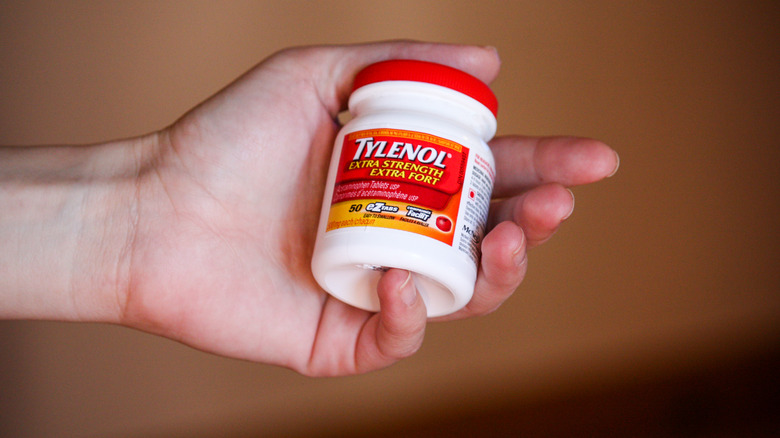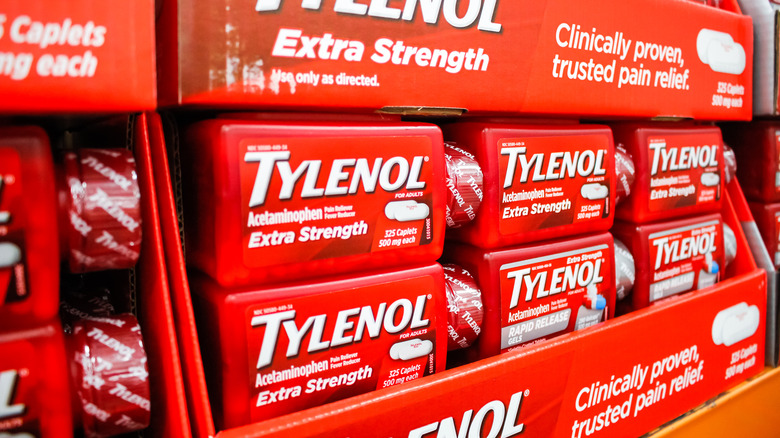Does Tylenol Expire?
If you're the sort of person that only reaches for Tylenol on the rare occasion that your headache finally becomes impossible to ignore, you might discover (after you actually find the bottle) that the pills are a year — or three — past the expiration date. What do you do? Is it still safe to use, or should you toss it and make a quick trip to the local drugstore?
It's a fair question, but you may be surprised to know what those tiny printed numbers mean. The FDA conducted a study of more than 100 prescription and over-the-counter medications and found that roughly 90% were perfectly fine to use even 15 years beyond the expiration date, according to Harvard Health Publishing. Another study found that many drugs still kept their potency for up to four decades (via Reader's Digest Canada). But some health experts still suggest it's worth considering a new bottle, particularly since drug makers come out with new formulas over time.
The expired Tylenol you have at home is probably ok to use
Francis Flaherty, former director of the FDA's testing program, said, "expiration dates put on by manufacturers typically have no bearing on whether a drug is usable for longer." She also suggests drug companies are more interested in profiting off of expiration dates rather than following scientific facts, adding, "It's not profitable for them to have products on a shelf for 10 years. They want turnover" (via Reader's Digest Canada).
That may be a cynical view of the issue, but it's indisputable that extending the use-by dates of many medications would result in major cost-savings for consumers and a decrease in sales for drug manufacturers.
For Tylenol, doctors generally recommend using the medication within four or five years of opening the bottle (via Insider). Keeping it in a dry and cool location can also help extend its shelf life. Also, Tylenol in tablet or capsule form can be expected to last longer than its liquid formulation, which should be used by the expiration date.


